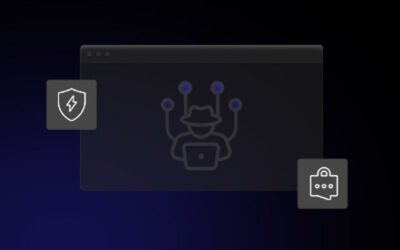The threats posed by cybercrime are at an all-time high. With most financial transactions being done electronically, and with more people than ever doing business from home offices, people and businesses have never been more vulnerable to exploitation. Thankfully, cybersecurity technologies are evolving just as quickly and are taking up the challenge of keeping on the internet safe and honest. Here are just a few of the best cybersecurity technologies available today.
1) IDENTITY PROOFING TECHNOLOGY
According to a recent and shocking Aite report, 47% of American consumers reported being victims of identity theft. Identity proofing is typically offered as a business-to-business service. In fact, in the financial sector, verifying customer identity is typically required by government regulation to prevent money laundering and other forms of wire fraud.
These services typically use multifactor identification systems, such as combining knowledge-based authentication along with other personal identification data, to determine the likelihood that someone is who they say they are. The verification processes are often tedious, but they’re certainly preferable to getting hacked.
2) BLOCKCHAIN ENCRYPTION
Blockchain refers to a radically new kind of encrypted database. It’s unique in exactly how it stores data, which is in blocks that are then chained together whenever a fresh block with new data is created. The system is called a distributed ledger.
The benefit of it is that the database is decentralized, and data stored on these decentralized blockchains cannot be changed once entered. This makes them extremely secure in spite of the lack of a central administrator. In fact, blockchain encryption is virtually immune to hacking, which makes it attractive to financial companies and personal users alike.
3) VIRTUAL PRIVATE NETWORKS
A virtual private network (VPN) is created by making a point-to-point connection via the use of tunneling protocols or dedicated circuits. Basically, it’s a way of encrypting internet traffic and hiding your personal identity by masking your actual IP address.
Since most websites monitor their traffic and even attach data packets (called cookies) to gather information on visitors, running a VPN is always a good idea. After all, you never know which sites are gathering your information for legitimate purposes and which have ulterior motives.
Joining a virtual private network (VPN) is often as easy as hitting a button. However, many users who should be engaging them aren’t doing so, either because it feels sneaky or they don’t think it’s necessary. In fact, any (legal) layers of security that you can put between yourself and the rest of the web is a good idea in this age of big data.
4) ENDPOINT SECURITY
Endpoint security refers to both a suite of digital security technologies as well as the techniques used to deploy those technologies. Endpoint devices are things like smartphones, laptops, and other Internet of Things (IoT) gadgets. With so many devices linked to a network, a threat to one is a threat to all.
The job of endpoint security management is to standardize response across all devices. The focus is placed on comprehensive defense, including next-gen antivirus, investigation and response, and advanced protection against data loss. Data leak protection (DLP) protocols are especially critical for businesses since research shows that each data file compromised costs a company around $146.
A networked world requires networked solutions, and that’s the aim of modern endpoint security.
5) BIOMETRIC SECURITY
It’s an unfortunate truth that cybersecurity is only as effective as physical security. Biometric security systems take defense to the next level by using fingerprint or iris recognition to verify identity.
Biometrics has been around for a while. Artificial intelligence (AI) is making it more effective, with pattern recognition able to not only distinguish faces but also predict intent through gait and other mannerisms. To many, it sounds Orwellian, but the wise and judicious deployment of this technology can actually help to secure our privacy.
As the number of people online continues to grow, so will the threats posed by unscrupulous users. Making sure that these few rotten apples don’t spoil the digital harvest is the job of cutting-edge digital cybersecurity technologies and the engineers who create them.



